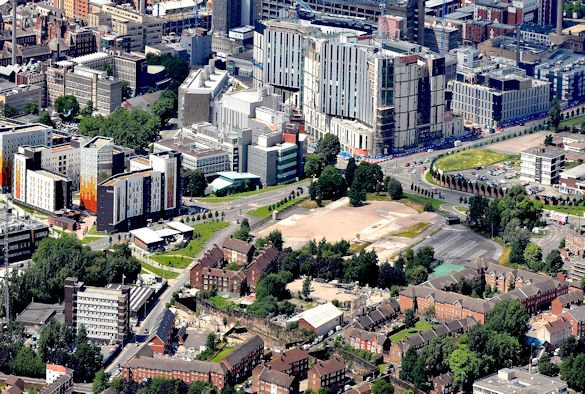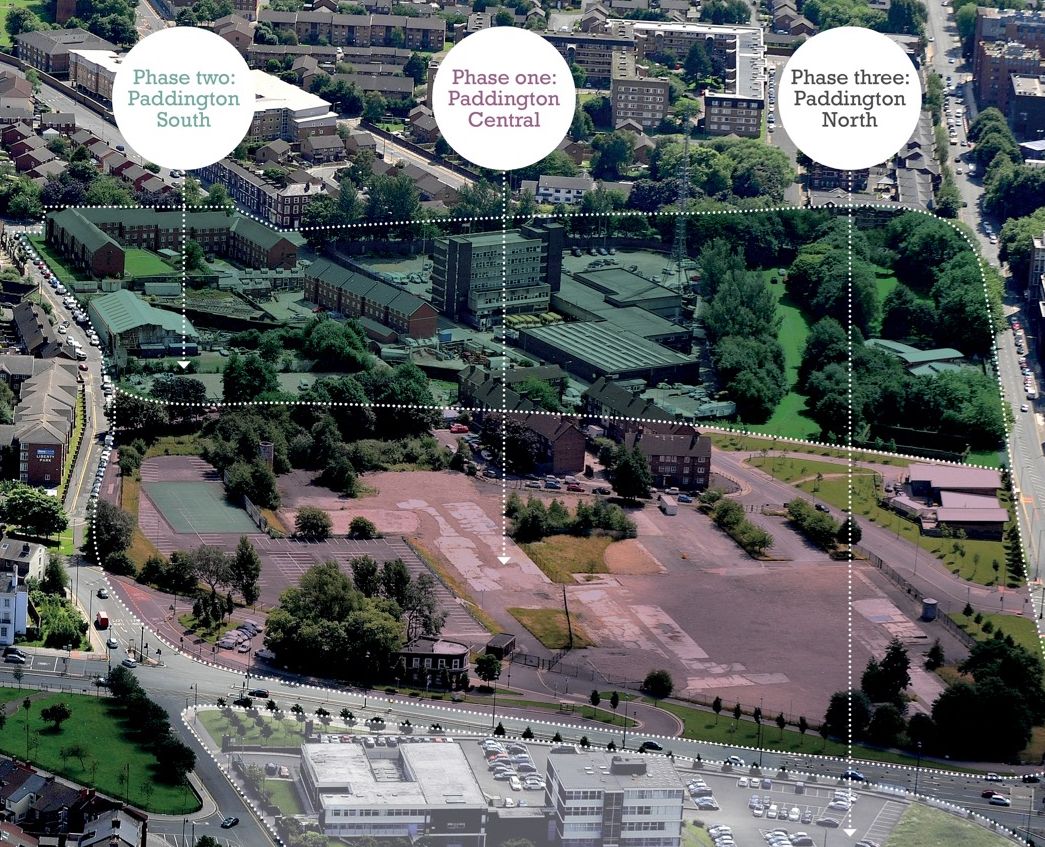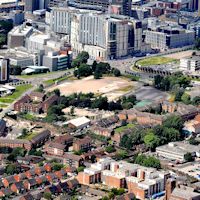
A multibillion pound vision for the redevelopment of a major part of Liverpool’s city centre has been unveiled by the city’s leading politicians, universities and hospitals.
The plans for the 450-acre Knowledge Quarter, which encompasses the University, Liverpool School of Tropical Medicine, Liverpool John Moores University and the new Royal Liverpool University Hospital, with the resultant Health Campus, will see it become a world-class destination for science, innovation, education, technology and the creative and performing arts.
Among the highlights of the £2bn, five-year plan is Paddington Village, a 1.8m sq ft health, education science and residential development space on the site of the former Archbishop Blanch school, and a brand new Knowledge Quarter Liverpool (KQ Liverpool) railway station, connected to Liverpool’s underground network.
Earlier this week, plans to develop Liverpool International College, which operates through a partnership between the University and Kaplan, were announced. These comprise a 45,000 sq ft education and learning facility with 260 residential bed spaces at Paddington Village, joining the Royal College Physicians’ new Northern Centre of Excellence as the first two anchor tenants at the 30-acre site.
These developments will complement a number of ongoing development projects in the Knowledge Quarter, such as the Clatterbridge Cancer Centre, Liverpool Life Sciences Accelerator, Materials Innovation Factory and Sensor City, which are currently being developed at a combined cost of £264m.
They may eventually be joined by a fourth innovation centre at Liverpool Science Park, a Centre of Excellence in Infectious Disease Research (CEIDR) and Materials Innovation Factory 2 – The Robotics Innovation Factory linked to the University of Liverpool Leverhulme Centre for Functional Materials Design.
A new KQ Liverpool investment fund is also planned, which would be made available to support life sciences and technology spin-outs and start-ups, particularly those arriving at Sensor City and the Liverpool Life Sciences Accelerator.
The announcements were made at the London headquarters of the Royal College of Physicians (RCP) to coincide with MIPIM UK, a major property and regeneration exhibition taking place in the city this week.
Professor Janet Beer, chair at KQ Liverpool, said: “For the North of England to keep pace, and eventually close the economic gap with London and the South East, we need to attract and retain the very best students, graduates, scientists, clinicians, academics and business innovators.
“This plan sets out our partnership vision for KQ Liverpool and how we intend to establish one of the world’s leading innovation districts. A place of collaboration and discovery in science, technology, education, medicine and culture and a place where great discoveries are made.”
The Knowledge Quarter is one of five Mayoral Development Zones in Liverpool, established as part of its ‘City Deal’ regional devolution agreement with central government.
Mayor of Liverpool, Joe Anderson, said: “With £1bn of investment already underway and a potential further £1bn at Paddington Village alone, these are really exciting times for Liverpool and the wider city region’s knowledge economy.
“Liverpool’s Knowledge Quarter is unique in the UK providing an unrivalled concentration of expertise in science, technology, health, education, music and the arts – all within a city centre location.
“When you also consider its natural wealth of cultural assets, such as Liverpool Philharmonic, the Everyman and Unity Theatres, not to mention two stunning cathedrals, the Knowledge Quarter offers a genuine sense of place and should be a clear first choice for organisations investing in the science, health and education sectors.”
Colin Sinclair, chief executive of KQ Liverpool, said: “We have a simple plan, which is to build on the existing academic, medical, scientific and cultural brilliance that already exists, to create a world-class innovation district at the heart of a great city region.
“We want this to be an attractive and innovative place where people will aspire to live and work and will never want to leave! Today’s announcement is another fundamental step towards that vision.”

